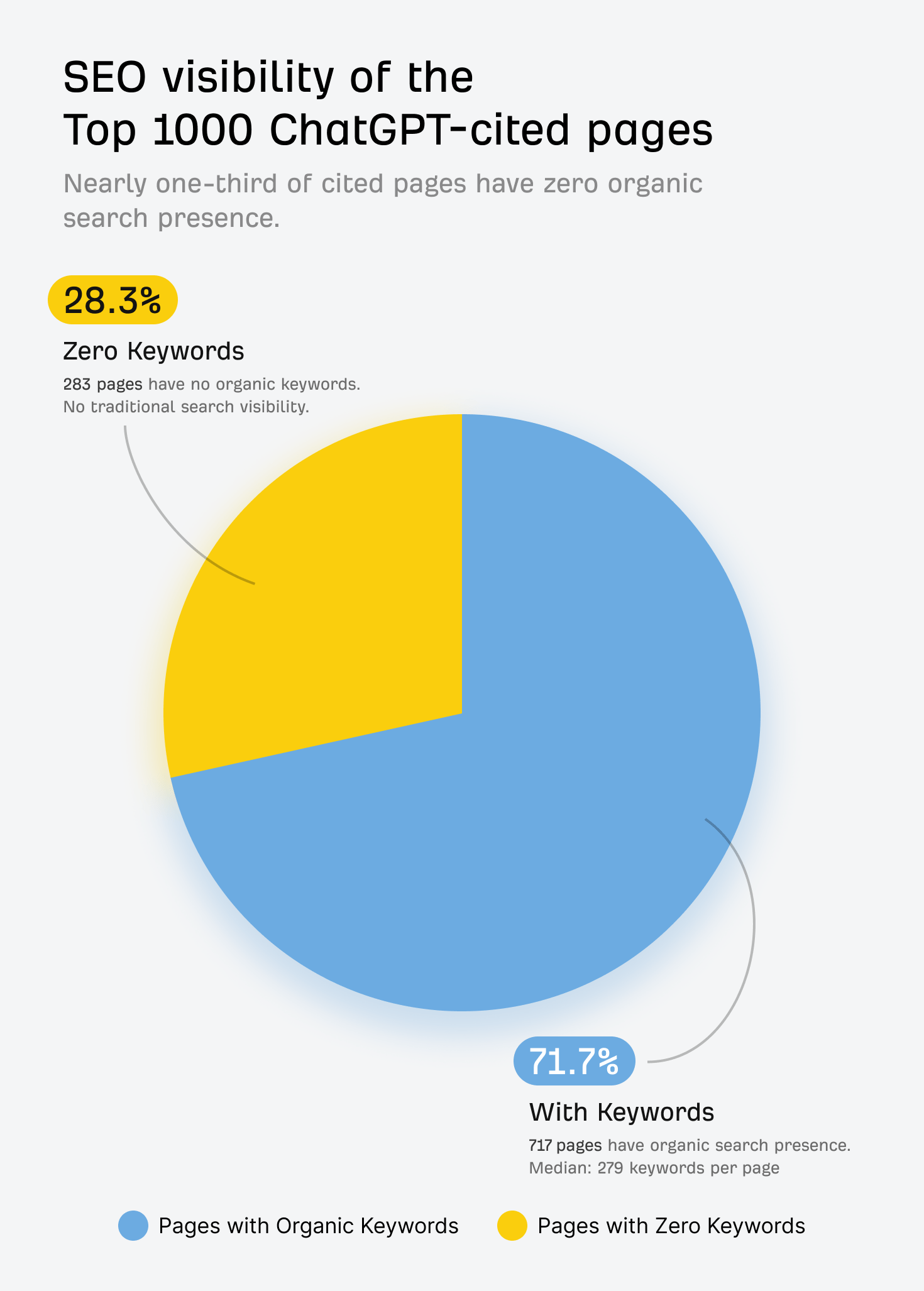From Reads to Leads is a newsletter for B2B tech founders and marketing leaders whose marketing isn’t working. It’s about positioning, messaging, content strategy, operations, and results. If this was sent to you, subscribe here so you don't miss the next email.
In today's newsletter:
"It's just SEO with a new name." "Write quality content and you'll be fine." "Marketers inventing problems again."
I've been seeing people say LLM optimization is a myth. But then, (this week, actually) I came across interesting data: 28% of ChatGPT's most-cited pages have zero organic visibility. Over a quarter of what AI recommends isn't optimized for Google.

Let me ask those who think LLM optimization is a myth some uncomfortable questions.
Let's see:
When people say "quality content," they're avoiding the real question: How do AI models decide what to cite?
Nobody knows. So they default to "quality" like it means something universal. Like there's some Platonic ideal of content that works everywhere.
There isn't.
“Quality” isn’t a moral virtue, guys. It’s a system-specific metric.
I've written about how to define content quality in one of my previous issues. You should take a look at it. Unlike the war in Ukraine, it's not so black and white.
Technically true. You don't need to follow any LLM-specific tricks or hacks in your content.

But let me ask you: How many articles have you seen that nail a company's value proposition in a way that provides value AND differentiates a product or company from competitors?
Most bottom-of-the-funnel content is garbage. According to my biased and very rough estimation, copywriting on 88% of B2B websites sounds like this: “Our platform helps businesses streamline operations and boost productivity."
And don't even get me started on expert content. I've seen it in all shapes and sizes. Most of it is crap. Writers spend an hour doing an interview with a subject matter expert then write “We conducted thorough research, selected the optimal approach, and implemented the solution using best practices." (You can read more on that in my issue “Your experts aren't making expert content (and how to fix it)")
LLMs are forcing writers to actually understand what they're writing about. To explain how products differ. To be specific about who should use what and why. Finally!
Because GEO is just SEO? (That's the next question)
SEO is the default way to reach customers when they search.
But now there is a new kid on the block. Those who say LLM optimization is a myth are deliberately ignoring how people actually search today.
You can pretend it’s the same thing. Yes, it overlaps a lot. But it’s not the same.
Google searches sound like this:
AI queries sound like this:
Google users are browsing. They might not be in the decision phase yet. But AI users are higher-intent and closer to purchase.
You can keep believing that having the right keywords is enough. But that mindset keeps you stuck in SEO tactics, instead of thinking about what you do, who you do it for, and why they should choose you.
SEOs are defending their turf saying GEO is just SEO. Same thing with a different name.
But the problem is, most SEOs don't understand brand marketing. And they will have no use in the AI search era.
They see the world through keywords, backlinks, and technical checklists. They do not see it through audience, positioning, and differentiation.
Before, we used keywords because that's how we talked to search engines. But with LLMs, users describe their problem and AI figures out the search strategy.
Your job isn't stuffing keywords or buying links. It's giving AI everything it needs to recommend you. And that means increasing the supply of contextually relevant information about your brand on your website and beyond.
Our job as marketers is to make this happen for brands.
People dismissing LLMO (GEO, AEO, AI SEO, whatever you call it) fall into two camps:
Camp 1: Those who haven't looked at the data.
Camp 2: Those who just keep doing the same thing they always have. They learned "best practices" in 2018 and refuse to adapt.
Both camps share one thing: denial.
Pretending AI visibility works like search visibility is comfortable. It means you don't have to change. You can keep doing what you've always done.
The right question: If 28% of AI citations bypass SEO entirely, what are those pages doing that SEO-optimized pages aren't?
“By 2005 or so, it will become clear that the internet’s impact on the economy has been no greater than the fax machine’s.”
- Paul Krugman, Winner of the 2008 Nobel Memorial Prize in Economic Sciences
Kateryna
P.S. If we aren't connected already, follow me on LinkedIn and Instagram. If you like this newsletter, please refer your friends.
P.P.S. Need help with quality content? Zmistify your content with Zmist & Copy

Your strategy needs a tree. How to use an opportunity solution tree to define the course of action for growing returning traffic to your website (one of the most overlooked targets in content marketing).

Subscribe to From Reads to Leads for real-life stories, marketing wisdom, and career advice delivered to your inbox every Friday.